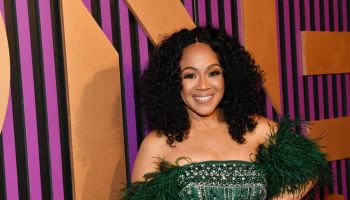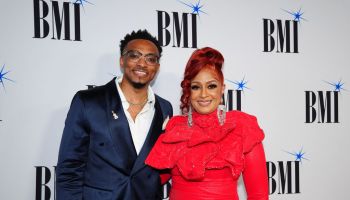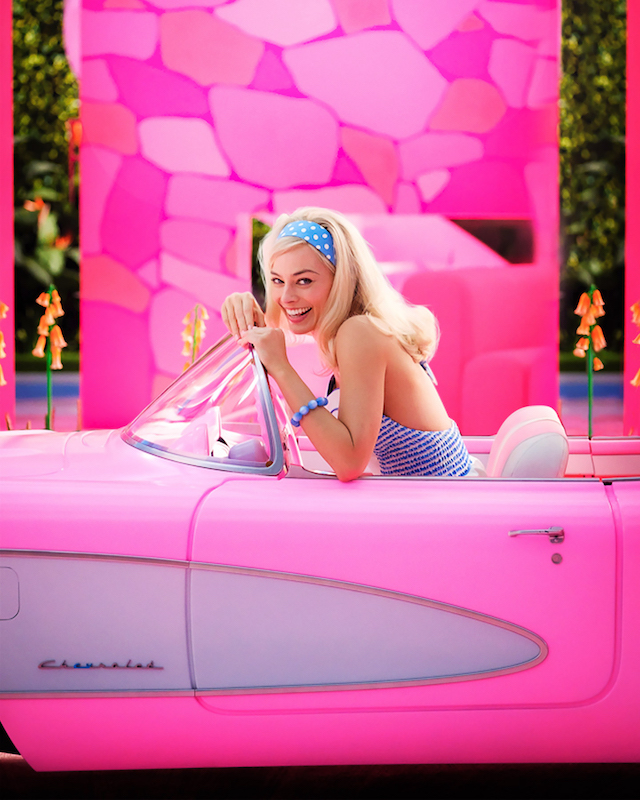
Source: Jaap Buitendijk / Jaap Buitendijk
Like it or loathe it, we’re currently living in a Barbie world — literally! Hit up your favorite retailer, and we can almost guarantee they’ve got a pink-themed collab on display. Heck, typing the term “barbie” into Google right now will give your entire computer screen a pink hue. In short, moviegoers globally haven’t been able to get enough of the era-defining plastic toy doll in recent weeks following her official Hollywood debut last month (July 21) with the world premiere of Greta Gerwig’s long-awaited live-action film, Barbie.
Well, not everyone.
Dwight Watkins, a University of Baltimore lecturer and fellow editorial brother in media by way of Salon.com, recently penned a heartfelt essay on why he and his infant daughter won’t be one of the millions heading out to see Barbie this summer. His reasoning is simple: too much “whiteness.”
RELATED: Learn The History of Black Barbie Dolls
Watkins wrote in his first-person op-ed for Salon that Barbie had “one of the whitest trailers” he’d ever seen, which immediately made him, as he put it, “cautious of what I expose my daughter to.” Elaborating further, he went on to add, “She’s too young to understand the complexities of gender, so how do you even begin to open the door to conversations about race and how movies and commercials in America act like white people have a monopoly on beauty?”
Read up more on Dwight Watkins’ beef with Barbie below, via Salon:
“As a family, we must be intentional when we buy Black dolls, books with Black queens and princesses and allow her to watch cartoons like ‘Gracie’s Corner,’ ‘OmoBerry’ and ‘Karma’s World.’ And no, we are not teaching her to only connect with Black art; it’s just that everything white is always available and at the forefront of everything. You don’t have to search for white content; it’s already in your face.
I never heard a white person say, ‘The representation was poor; I just don’t see myself in the art,’ yet Black people and people of color deal with this daily. America intentionally and unintentionally shoves whiteness down our throats every day, every minute, every second, and there’s not much we can do about it, other than thoughtfully curating a child’s experience.”
He ended his short thesis by doubling down on efforts to “religiously” teach his three-year-old that Black is beautiful. “Avoiding films like Barbie is a part of that teaching,” he concluded, and certainly there’s some validity in his way of thinking. For many years, Barbie and Mattel received flack for its lack of diversity on many levels, including promoting unrealistic body proportions, making the “Coke bottle body” a beauty standard and, yes, helping to define society’s status quo as a woman with long blonde hair and baby blue eyes. Even the Black Christie doll didn’t do much to balance things out, which made the appearance of Issa Rae as one of the titular dolls in Barbie feel both very welcomed and very long overdue.
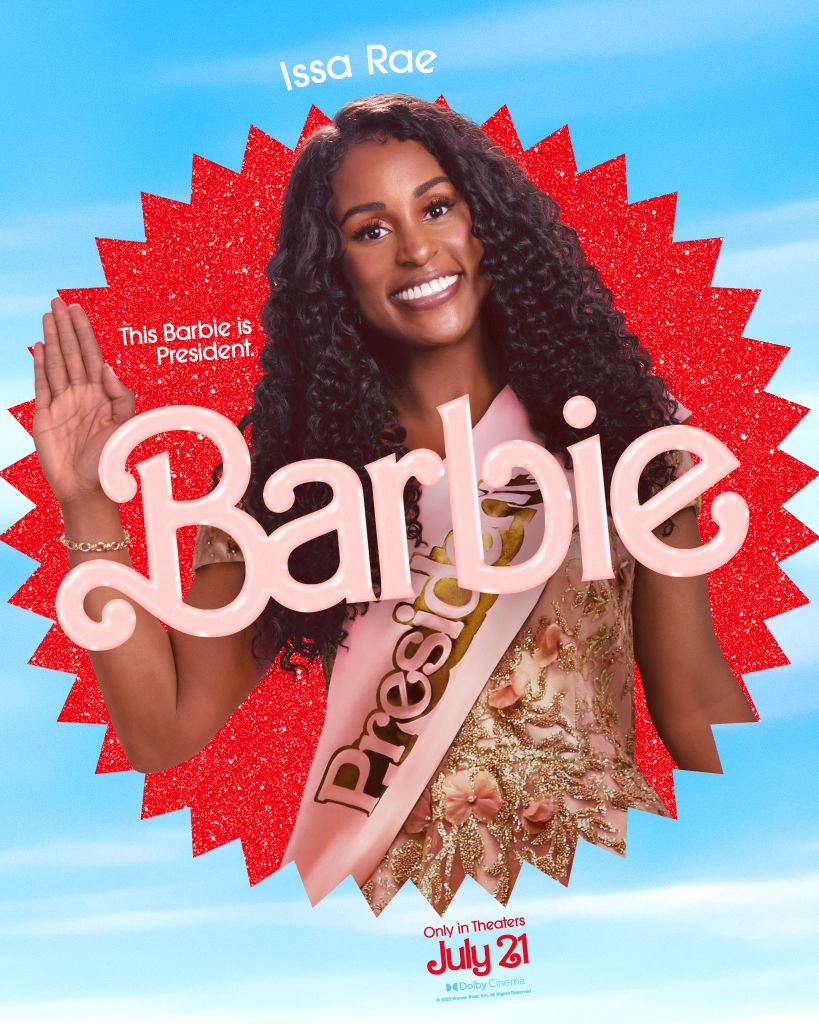
Source: Warner Bros. / Barbie The Movie
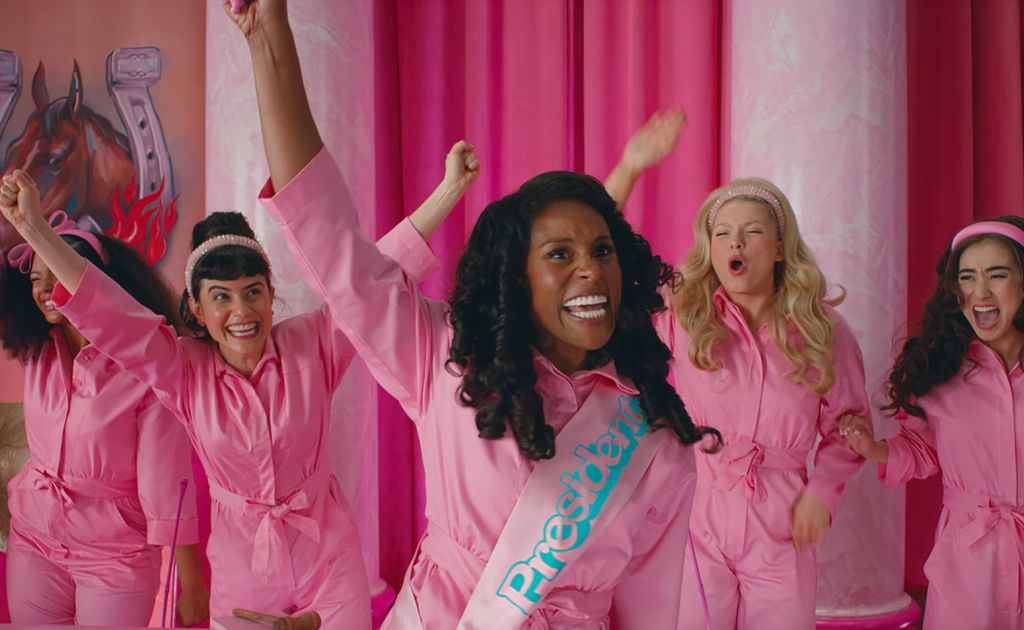
Source: Warner Bros. Pictures / Warner Bros. Pictures
So, let us know: is #BarbieSoWhite, or do you only see the world in pink? Sound off with your thoughts, and take a look at how some reacted to this viral Barbie story on social media below:
- Husband Makes Black Game Developer Barbie For His Wife After Noticing Mattel’s Lack Of Diversity
- Parody Account “White Savior Barbie” Brilliantly Mocks Insincere Volunteer Selfies In Africa
- Barbie Finally Adds Dolls With Normal Body Types, Plus 7 New Skin Tones
The post ‘Barbie’ Not Black Enough? Professor Goes Viral For Not Taking Daughter To See The Film Due To “Whiteness” appeared first on Black America Web.
‘Barbie’ Not Black Enough? Professor Goes Viral For Not Taking Daughter To See The Film Due To “Whiteness” was originally published on blackamericaweb.com
1. My daughter and I just discussed this . Most barbies were just dipped in Blackface . Imo didnt represent our bodies types, or features .
via @locz4me
2. Who is racist now. Too much whiteness? Your daughter doesn’t see white or black. She sees fun and what makes her happy. YOU, Sir, are the problem. She will be what YOU teach her.
via @RalphMo84775072
3. I walked out of the Barbie movie after ten minutes and hid in the bathroom (mens). I couldn’t handle the glaring whiteness. It was offensive.
via @JebraFaushay
4. How sad for the child :( While everybody is entitled to their opinion, should University professors be held to higher standards when voicing possibly divisive stances that objectively add nothing of value other than their own prerogative? Honest question.
via @AThorn111
5. Whiteness?? Perhaps he meant Pinkness? The Barbie movie looks like a barfed up bottle of Pepto-Bismol
via @GoForDawn
6. CAN’T be the Only reason he didn’t take her. But a good reason, nonetheless.
via @BobalooBlue
7. No imagine if a white professor had said he wouldn’t let his daughter see the black panther because when he saw the previews, he was overwhelmed by blackness. He would be placed on leave immediately by the University. Why are we accepting this double standard?
via @damsell_scott
8. i have not seen the movie yet, but from what iv gathered it seems very white feminist/corporate feminist. which will always be confusing to me as a black woman, because it seems like whiteness is still a power structure in barbie land, but u cant have whiteness without patriarchy
via @mielicy
9. I don’t understand why the author would even consider taking a three-year-old to a PG-13 movie. And why write a review of a movie you’ve never seen? Barbie is not a children’s movie.
via @handmadekathy
10. Whoomp, there it is…
via @nela_minded





